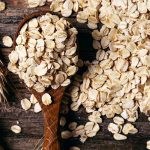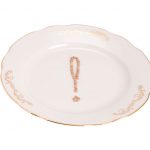Two months ago I moved Dad and me to the Gold Coast. During the six months leading up to the relocation I was immersed in the formidable task of decluttering the family home of 40 years. Formidable because my parents were Olympic Gold Medalist shopaholics and hoarders and because for the last few years before Mum passed away, Dad’s encroaching dementia meant he kept forgetting he’d recently bought shampoo and serviettes so he went on buying them every week. Six years on and we still haven’t gone through all the shampoo and serviettes he’d amassed. In fact when we moved out, we had enough serviettes to give three packets each to everyone in the street as a memento.
When the enormity of the decluttering first dawned on me, I felt completely overwhelmed. I was drowning in stuff. How to even start? Then a friend handed me a remarkable book. It was written by a Japanese woman called Marie Kondo and it was titled The Life-Changing Magic of Tidying Up. The opening paragraph struck an immediate chord with me: ‘Have you ever tidied madly, only to find that all too soon your home or workspace is cluttered again? … almost everyone has experienced a rebound effect at least once, if not many times, after tidying their home.’
Let me replace the words in red with those below.
‘Have you ever faithfully dieted, only to find that all too soon your body regains the fat again? … almost everyone has experienced a rebound effect at least once, if not many times, after depriving their body of food.’
Marie Kondo explains that ‘the root of the problem lies in the mind’ and when we correct our ‘mistaken notions about tidying’ and begin to tidy in accordance with our own personal values, the mess no longer returns.
I had a lightbulb moment. There were no rules about what one should and shouldn’t keep (or eat). I couldn’t get it wrong because it was a journey of discovering what was important to me and Dad in the present moment (the same goes with food). I was free to let go of what I didn’t need or want based on my own values, not based on other people’s values and not resting on the tenuous notion that ‘it might come in handy one day’. It rarely does and if it does I can never find it when I need it.
The reason I found this empowering is because it’s exactly what I teach in relation to eating and giving ourselves the best nutrition. People continue to come to me feeling overwhelmed by the constant clutter of contradictory dietary advice. Are carbs or fats the villain? And do I need a mathematical formula to calculate my daily protein requirements? Or as one retreat participant recently lamented, ’There’s nothing left to eat. At one time or another just about every edible substance on the planet has received a bad rap.’
Of course there are foods that are intrinsically more nutrient-rich and health-promoting than others. I’ll delve more into the science of sugars, complex carbohydrates, proteins and fats over the ensuing months. But the important point – highlighted by Marie in relation to tiding – is that we are all unique in our needs and preferences at any given time – whether that be for food or for the objects that occupy our personal space.
Marie’s starting point for whether or not to keep something, is to ask yourself the question, ‘Does this spark joy?’ She suggests that with each object under consideration, we pick it up, feel it, look at it and experience it with all our senses before asking the question that matters most: ‘Does this spark joy?’ If the answer is yes, keep it. If the answer is no, give it to someone else or simply throw it out.
Once again, allow me to replace the words in red.
With each food you are concerned about eating, pick it up, feel it, look at it and experience it with all your senses before asking the question that matters most: ‘Does it spark joy?’ If the answer is yes, eat it. If the answer is no, give it to someone else (for instance dairy may cause you to feel bloated but it can be perfectly nutritious for someone else) or simply throw it out. You can’t get it wrong because it’s a journey of discovering what does and doesn’t agree with you. If you pay attention when you eat, even if you choose something that isn’t healthful, you will soon sense that ‘this doesn’t feel right for me after all’.
Sounds too simplistic? Not if you create the circumstances that allow you to tap into your innate understanding of what is truly nourishing for you. More about this in the next HEB.


